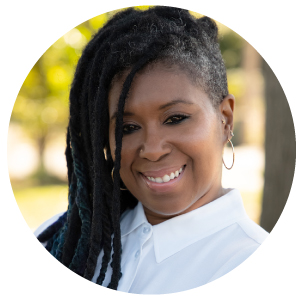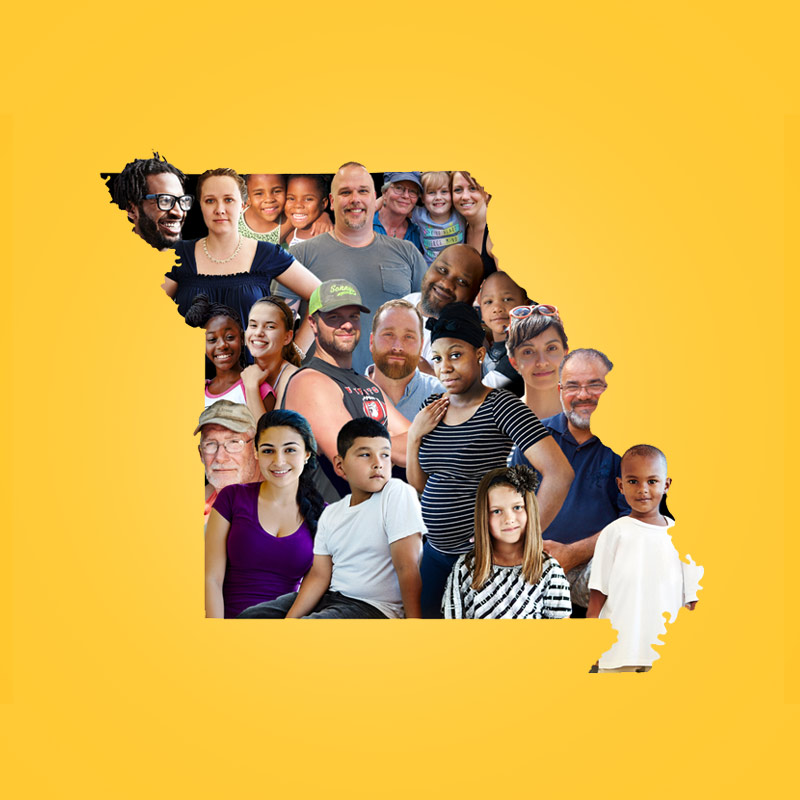As published and seen on July 29, 2020, on Medium

Like most other states, Missouri is struggling to achieve health equity. Medicaid has not been expanded, women’s health issues are too often neglected, and Black and foreign-born communities are experiencing the COVID-19 pandemic very differently from others.
Health inequities are tightly bound to economic and racial inequities. It is all part of the same problem: people with privilege have access to much better health resources than everyone else. But one thing that the COVID-19 pandemic has taught us is that no one is exempt from becoming the “everyone else” who is vulnerable to disease, poor health, and hard times. That’s where the programs and supports that make up the health and social safety net come in.
Our communities are only as strong as our people. A strong safety net helps Missouri thrive by connecting individuals — our families, friends, and neighbors — to the food, shelter, health care, and economic resources they need to lead healthy lives. As we imagine what the safety net should look like in 30 years, we want to ensure that Missourians are weighing in.
Missouri Foundation for Health (MFH) joined the national health initiative FORESIGHT so that people in our state, especially those whose voices are not often heard, are at the table to rethink the future of health in the U.S. MFH brings to FORESIGHT what we have learned through years of effort, including a research-informed communications campaign that was based on insights from Missourians about the value of the safety net and their experiences with safety net programs.
In late 2017, when we surveyed a representative sample of 840 Missouri voters, we heard varying degrees of understanding about the safety net. Many people approached the conversation with preconceived notions and misconceptions about what it is and who uses it. But our research also revealed that the safety net is vital. Half of Missourians we surveyed had personal experience with safety net programs and two-thirds knew someone who was receiving assistance. Eight in 10 people wanted to maintain or increase funding levels for these programs, and almost everyone we spoke with agreed that the safety net is important.
These results were used to launch MFH’s first-ever foundation-led campaign, #TheNetBenefit, with a goal of educating Missourians about what it means to have a robust safety net in place that supports health, ultimately leading to stronger communities and a stronger state. By sharing information and personal stories of real Missourians, #TheNetBenefit helped change the conversation about the safety net and who benefits from it.
The longest ever U.S. government shutdown happened in 2018/2019 and came hot on the heels of the campaign’s rollout. Suddenly government programs ranging from food stamps to cash infusions to rent assistance for rural families were stalled or severely threatened. The shutdown reinforced #TheNetBenefit’s messaging and made the campaign even more relevant. The shutdown made the stories of the #TheNetBenefit more real. It revealed that at any given time, one’s life could change and that no one is immune to being “in need.”
Many of the same strategies and ideas from #TheNetBenefit have played into our Census 2020 work. Focus groups conducted last year in rural Missouri revealed distrust and misconceptions about the Census and an overall lack of knowledge about what it does beyond counting people. To encourage participation, MFH developed a campaign to educate Missourians on how participation influences legislative representation and millions of dollars in federal funding for health care, school resources, and more. Our efforts focus on populations who are most at risk of being undercounted and have the most to lose in terms of federal support, including Black residents, low-income communities, and immigrants.
Having an accurate Census count in Missouri would be one step in the right direction toward improving the health and well-being of individuals and communities. In 2019, Missouri ranked 39th out of the 50 states plus Washington, D.C. People in our state are suffering from rising obesity, diabetes, mental health distress, and gun violence. We also have among the highest rates of smoking and excessive drinking in the country. These outcomes are compounded by some of the country’s lowest public health investments — only $57 per person compared to a U.S. average of $87 — and a weak public health infrastructure.
Across the board, racism has proven to be a deadly public health issue. The inequities that are embedded in the systems that serve Missourians are rooted in racism and disparities, making health an even greater challenge for marginalized individuals and families. Black people are less than 12% of Missouri’s population but, as of late June, we accounted for more than 30% of our state’s deaths from the virus.
MFH has worked for two decades to generate and accelerate positive changes in health, and now with FORESIGHT, we can be part of a nationwide effort to equitably re-envision health. Together, we are learning from the past, building on the present, and crafting a vision for the future. Through FORESIGHT’s online platform, we can ask people in Missouri big questions: What kind of safety net do we need in the coming decades to support this vision? And who should weigh in on the shape, scope, and composition of that safety net?
As we move forward creating a “next normal,” can we design a healthier future for all of us, not just the most privileged? FORESIGHT is helping to spark this new conversation, and by joining in, we can all benefit from what’s to come.



